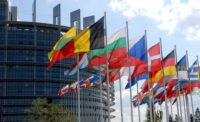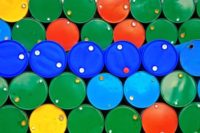 The European Chemicals Agency (ECHA) recently released a list of 13 substances it wants banned under the European Union's (EU) REACH chemical law.
The European Chemicals Agency (ECHA) recently released a list of 13 substances it wants banned under the European Union's (EU) REACH chemical law.
The list presented to the European Commission was a follow-up to a Dec. meeting of an EU member state committee convened by ECHA; the committee agreed in principle to nominate the substances for a ban.
The substances are seven chromium compounds (chromium trioxide, chromic acid, sodium dichromate, potassium dichromate, ammonium dichromate, potassium chromate, and sodium chromate), five cobalt compounds (cobalt sulphate, cobalt dichloride, cobalt dinitrate, cobalt carbonate, and cobalt diacetate), and the industrial solvent trichloroethylene.
The chemicals already are listed as “substances of very high concern” under REACH (Regulation No. 1907/2006 on the registration, evaluation, and authorization of chemicals), and the proposal to ban them has been subject to a public consultation.
REACH requires the European Commission, the European Union’s executive arm, to make the final decision on imposing a ban, on the basis of ECHA’s recommendation.
If a ban is imposed, companies will be able to request authorization to continue to use the substances in specific cases if no alternatives are available.
This is the third set of substances proposed by ECHA for a ban. The Commission so far has agreed to ban six chemicals.
European agency recommends banning certain chemicals

Looking for a reprint of this article?
From high-res PDFs to custom plaques, order your copy today!





